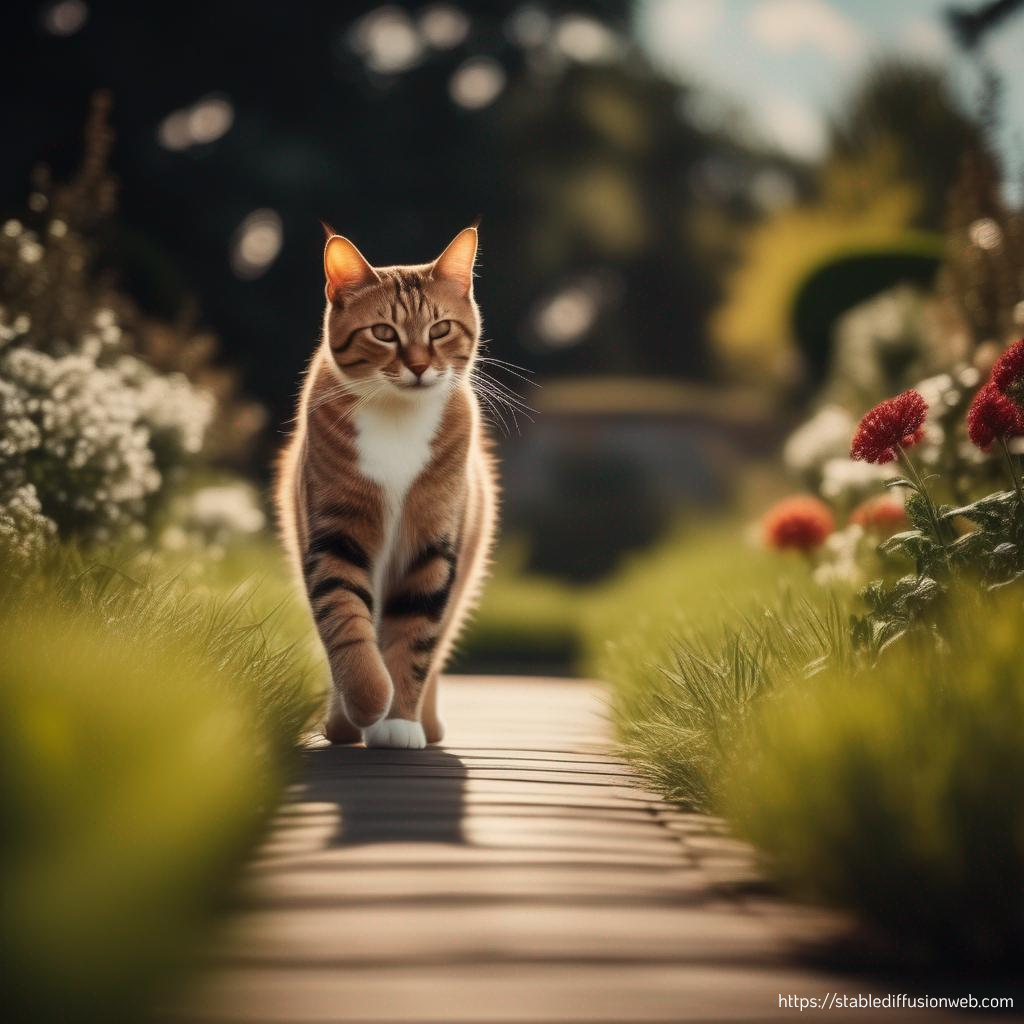1. Cat Repellents:
Commercial cat repellents create a robust defense against feline invaders. These products work by emitting odors and tastes that cats dislike. This effectively discourages them from entering restricted areas. Compared to DIY solutions, commercial cat repellents are generally more potent. One advantage of these repellents is their purposefullness and effectiveness,helping to deter cats from specific areas like windows or flower raised beds. Additionally, they create a clear boundary that cats are less likely to cross. Despite of powerful function, these products are safe for humans, pets, and other cats when used correctly. Although it is effective, commercial cat repellents may require regular reapplication to maintain their efficacy and may emit noticeable odors, which should be taken into consideration.
Advantages:
A. Effective
B. Easy to use
C. No physical structures required
Disadvantages:
A.Contain chemicals
B. May need frequent reapplication
2. Using Plants to Deter Cats:
Are there plants repel cats? Yes! This is a natural way to keep those frisky felines out of your yard or garden. Since cats are sensitive to smells, experts recommend placing small amounts of citrus in your yard or garden, as cats dislike this scent. Additionally, she suggests other plants, such as Coleus caninus (scaredy cat plant), emitting unpleasant odors to cats without harming them. Some plants notorious for having scents cats dislike are lavender and rue.
Relying on plant deterrents provides an Eco-friendly alternative to chemical repellents and adds aesthetic value to your outdoor space. The plants can play a role in deterring cats, but if combining them with other methods (physical barriers or deterrent sprays) will be more effective.
Advantages:
A. Completely natural (no chemicals)
B. Beautifies the environment
Disadvantages:
A. Less effective than chemical repellents
B. Requires watering and plant care
3.Structural Solutions:
Cat deterrent spikes offer a practical way to keep cats away from your backyard and garden.The cat scat mat is compact and has clever designs aimed at creating a physical deterrent for cats. balancing a cat’s nature and our enthusiasm for gardens. They may appear unassuming but possess intricate designs that create physical deterrence for cats. Cats would be uncomfortable if they step on these spike mat,which preventing them from entering restricted areas. Cat deterrent spikes are safe— they won’t harm animals, just deter them. Placing these deterrents in your vegetable garden or flower beds helps protect your outdoor garden from unnecessary cat visits.
Advantages :
A.No chemicals involved
B. Durable
C.Low maintenance cost
Disadvantages:
A.May lack visual appeal
B.Requires proper installation
DIY or Purchased Home-Made Solutions:
DIY and home solutions is an affordable and creative way to keep cats from your garden or yard. Although these solutions may not work the same results as commercial one, they still worth exploring. For instance, scattering orange peels, coffee grounds, or chili around the garden might deter cats due to the strong odors. Moreover, using a homemade spray which made of vinegar, citrus juice, or essential oils mixed with water can be used to specific areas. Keep in mind that the results of these DIY solutions are anecdotal, and pet parents should be aware that their effectiveness may be different. Nevertheless, these DIY deterrents provide a starting point for pet parents to seek a simple, ready-made option to help preventing cats.
Advantages :
A. Inexpensive, quick, and easy to make
Disadvantages :
May not be as effective as commercial products
In general, creating a cat-friendly garden involves finding a balance between enjoying your outdoor space and deterring unwanted feline visitors. Whether you choose commercial cat repellents, plant-based solutions, structural barriers like cat scat mat, or DIY methods, the key is to prioritize the well-being of both your garden and the cats.

